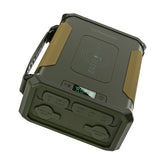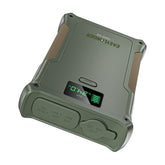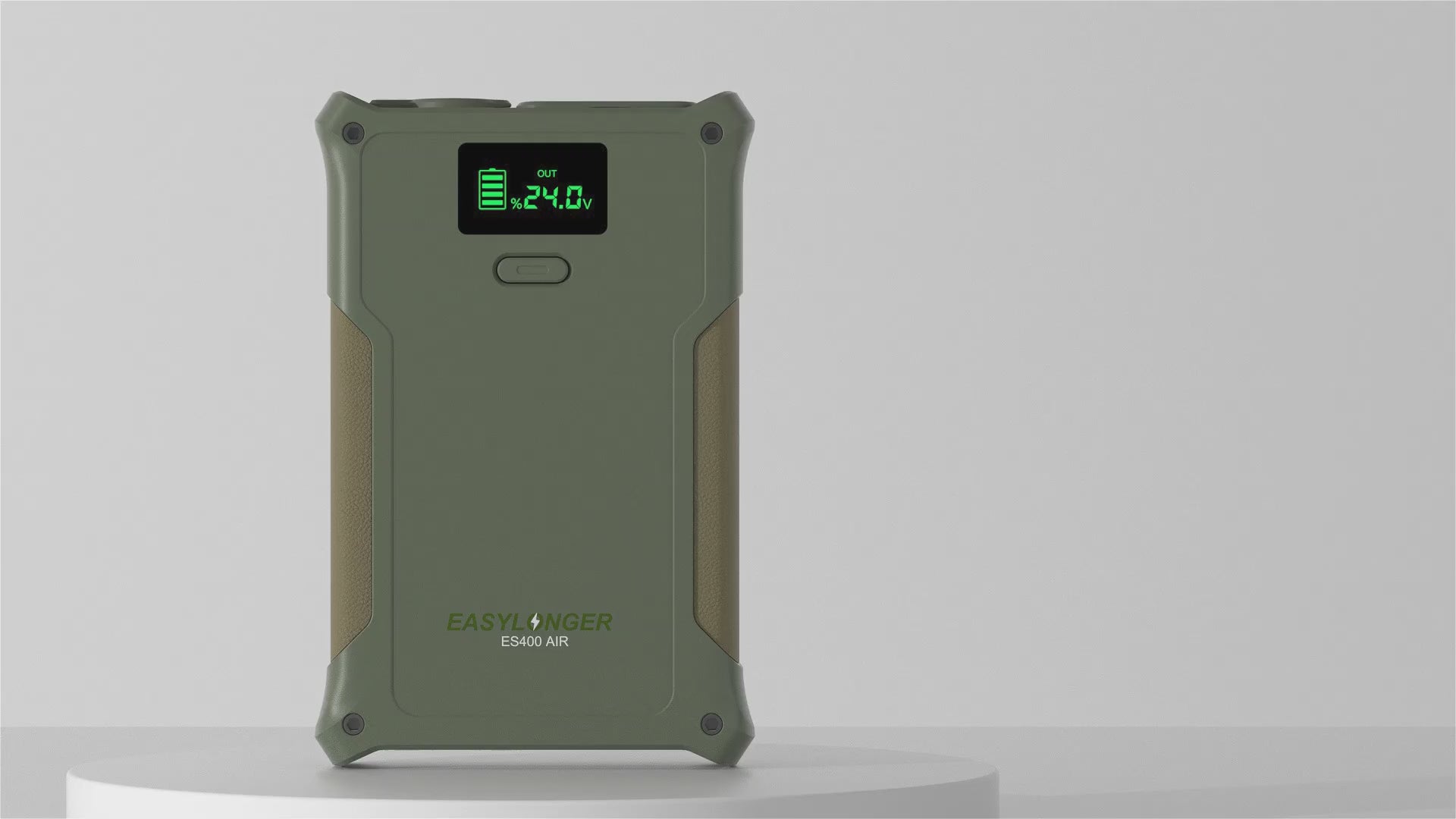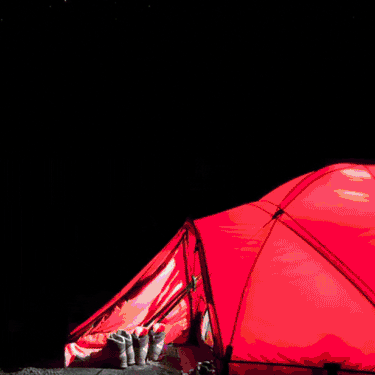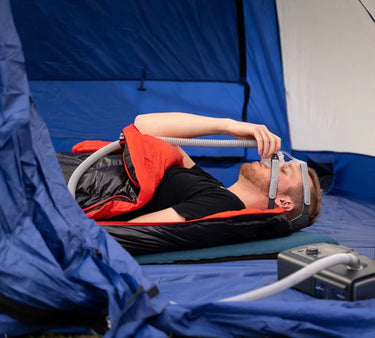The Top Sleep Apnea Apps You Might Be Overlooking
The Top Sleep Apnea Apps You Might Be Overlooking
Do you often wake up feeling unrefreshed, even after a full night’s sleep? Do you struggle with staying focused or feel more tired than you should during the day? Has anyone close to you mentioned your loud snoring or noticed that you seem to be gasping for air at night? These could all be signs that you may have sleep apnea.
Sleep apnea is a serious condition where the airway becomes blocked during sleep, often leading to intermittent pauses in breathing. This interruption reduces the amount of oxygen getting to your body and causes you to wake up briefly, disrupting your sleep. The American Medical Association reports that 30 million people in the U.S. suffer from sleep apnea, but many remain undiagnosed, which could lead to daytime fatigue, poor concentration, and even health risks like heart disease.
If you suspect you might have sleep apnea, while nothing beats a professional diagnosis through a sleep study, your smartphone or wearable device could help you gather valuable information and possibly track sleep patterns indicative of the condition.
Categories of Sleep Apps
There are three primary categories of sleep-related apps, each offering a different way to monitor your sleep and improve your rest:
- Built-In Sleep Features: Most smartphones and wearables come equipped with built-in features that help you establish a bedtime routine. These include apps like Apple's "Bedtime" and Android’s “Sleep Mode” that help you set regular sleep and wake times.
- Third-Party Apps: Apps like SleepScore and SleepCycle track various sleep metrics, offering insights into sleep quality, sleep stages, and factors that might influence your rest.
- CPAP Apps: For those who use CPAP therapy, apps from your CPAP machine manufacturer, like ResMed’s "myAir" or Philips’ "DreamMapper," sync with your device to provide feedback and help you track your treatment effectiveness.
Can Sleep Apps Detect Sleep Apnea?
While apps can’t provide a definitive diagnosis for sleep apnea, they can help you track behaviors and symptoms that might point to the condition. Apps like SnoreLab and SnoreControl, for instance, listen for snoring and other signs of interrupted breathing during sleep. These apps can help you identify possible sleep apnea events like gasping for air or loud snoring, which you can then discuss with a doctor.
Research has shown that mobile apps, like the 2015 University of Washington study using the app ApneaApp, can detect sleep apnea events with a reasonable degree of accuracy. However, these apps cannot replace a professional sleep study, which remains the gold standard for diagnosis.
Popular Sleep Apnea Apps
Below are some of the best sleep apps that help you monitor your sleep patterns and may help identify signs of sleep apnea:
1. SleepTracker 24/7
Cost: $0.99
Platform: iOS, Android
Rating: 4.5 Stars
Using advanced AI, SleepTracker 24/7 provides detailed insights into your sleep patterns, including sleep stages and heart rate. The app also features an intelligent alarm that wakes you at the most optimal time, helping you feel more rested. It's a top-rated app among iPhone users, known for its effective tracking and user-friendly interface.
2. SnoreLab
Cost: Free with Premium Features
Platform: iOS, Android
Rating: 4.7 Stars
SnoreLab specializes in tracking and analyzing snoring sounds throughout the night. It provides detailed records of your snoring episodes and offers tips to help reduce it, which can be an indicator of underlying sleep issues, including sleep apnea. The app is well-regarded for its ease of use and detailed feedback, making it a great tool for those seeking to understand their sleep patterns better.
3. Sleep++
Cost: Free
Platform: iOS Only
Rating: 4.2 Stars
Sleep++ works seamlessly with the Apple Watch, automatically tracking your sleep and presenting data in a simple graph. It monitors your sleep cycles and periods of restlessness, making it a helpful app for Apple users who want a straightforward, no-fuss tool for tracking their sleep. However, it lacks specific recommendations for improving sleep quality.
4. Sleep as Android
Cost: Free with Premium Features
Platform: Android Only
Rating: 4.3 Stars
Sleep as Android is a highly rated sleep tracker for Android users. It integrates with wearables and provides a comprehensive suite of features, including sleep tracking, smart alarm, and suggestions for improving sleep quality. The app even tracks sleep debt and offers insights into how lifestyle factors such as exercise or caffeine intake may be affecting your rest.
5. Runtastic Sleep Better
Cost: Free with Premium Features
Platform: iOS, Android
Rating: 4.1 Stars
Runtastic Sleep Better tracks not only sleep quality but also how your daily habits like exercise, food, and even moon phases affect your sleep. With a built-in dream diary and the ability to function in airplane mode, this app offers a unique perspective on sleep tracking. It's particularly beneficial for active individuals who want to monitor the connection between their fitness routines and sleep patterns.
CPAP Apps for Better Therapy Management
If you're using a CPAP machine to manage sleep apnea, the apps provided by the manufacturers can help you track your progress and optimize your treatment. These apps sync data from your CPAP machine to provide real-time feedback and tips for improving your therapy.
Philips DreamMapper
Philips DreamMapper provides an easy-to-read bar graph of your sleep data, including metrics like therapy time, air leaks, and the Apnea-Hypopnea Index (AHI). It also includes helpful coaching tips to help you improve your CPAP therapy.
ResMed myAir
ResMed’s myAir app is designed to give users a comprehensive view of their therapy data, including a composite score that reflects overall sleep quality. The app offers personalized coaching and helpful videos to ensure you get the most out of your CPAP therapy.
Conclusion
While sleep apnea apps can help you track your sleep and highlight potential issues, they are not a replacement for professional diagnosis. If you suspect sleep apnea, it's important to consult with your healthcare provider and undergo a sleep study. These apps are excellent tools for monitoring your sleep, and when used alongside medical advice, they can help improve your overall sleep health and quality of life.

